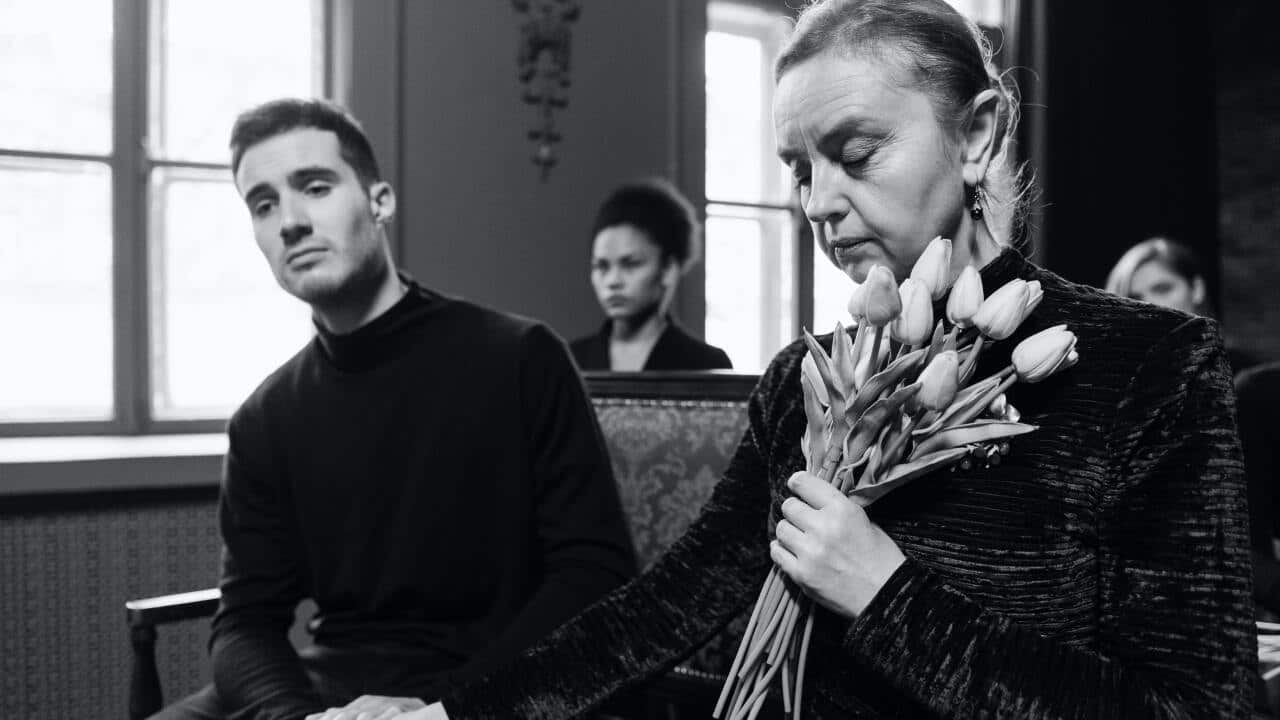Highlights
- If a person dies, his/her current spouse is entitled to majority of assets even if there is no will. This is called intestacy.
- If there is no will, the living spouse files a petition with the Supreme Court in his/her state. The petition is called letters administration.
- The current spouse gets the lion's share of the inheritance, but he/she can choose to settle amicably with the deceased's children.
'May PERAan' is SBS Filipino's podcast series which features financial experts seeking to answer the most common questions about money and finances.
Listen to audio
LISTEN TO

May habol ba ako sa ari-arian ng pumanaw kong asawa kung wala siyang iniwan na will?
SBS Filipino
31/05/202212:01
"As stated by the law, the [current] spouse gets the lion's share of the inheritance," solicitor Florante Abad says.
Specialising in family law, Florante shares what a spouse or de facto partner needs to take note of when it comes to inheritances.
"As the spouse of the deceased, you are entitled to his/her assets. You have rights. The inheritance law in NSW is the same as in the Philippines. It doesn't matter if there is no will," Florante shares.
He says that if the deceased left a will, it will be submitted to the Supreme Court of the state.
"You call that a probate," he says.
Intestacy
Florante says that the process is different when there is no will.
"When there is no will, a petition called letters administration is submitted to the Supreme Court. In this petition, you have to prove that you are entitled to the assets of the deceased. Without a will, the estate of the deceased is called intestate."
Spousal legacy
Florante says that even without a will, a spouse is automatically entitled to a percentage of the estate.
"As of 2022, when it comes to inheritances, a spouse is entitled to a statutory legacy of $350,000, adjusted by theat the time of death.
"Inheritance is, let's say, about $1.6 million. After applying CPI, it becomes $489,000. That is set aside automatically for the spouse. Half of whatever is left is given to the spouse and the other half is divided amongst the children."
How to claim
In order to claim one's inheritance, a visit to a solicitor is advised.
"Before you see a solicitor, prepare documents such as a marriage certificate, death certificate and a list of assets and liabilities of the one who passed away.
"With the help of a solicitor, you will then prepare a letters of administration application so you can apply to be the trustee of the estate. Once the court approves the application and appoints you as the trustee, you will become the main person to oversee the distribution of the assets. You will stand in the place of the deceased."
When someone challenges
There are some instances in which children of the deceased challenge the distribution of the inheritance.
"The only way to challenge is through a Family Provision Claim. Through this claim, the one challenging the inheritance needs to prove special financial circumstances connected to the deceased and, that that they are financially dependent on the one who died."
Florante says that challenging inheritances may be difficult.
"You have to go through a litigation and that costs money. If you aren't able to prove your claim, you need to pay legal costs.
"You can instead go through a mediation wherein all parties are given an opportunity to settle claims amicably. They can thresh out claims, come to an agreement and submit that agreement to the court."
For more information regarding inheritances and other issues regarding family law, visit: .
Disclaimer: The information in this article serves only as a guide. For additional information regarding your particular issue or situation, consult with legal, financial and/or tax experts.


